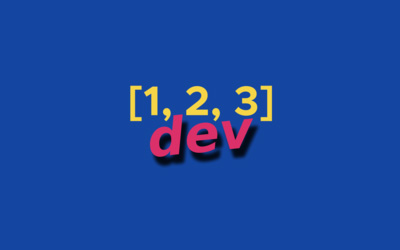Hidden work, systems design, compensation, and faster learning - 123dev #10
Posted on September 15, 2021 • 2 minutes • 410 words

Comments
Hidden work
I never thought about how donuts were filled. I should have guessed it was someone’s job, but I assumed it was automated. It makes me realize there’s a lot of work I never think about.
There is lots of work I do that no one else thinks about. This isn’t a bad thing. It’s important to view my work as a delightful filling to someone’s day. Hopefully, like this email is for you.
Getting unstuck
I’ve been working on a personal project that was beyond something I’ve done before. I was excited to learn new technology and solve a problem for myself. After multiple nights researching and trying things I was failing to find docs or examples for what I wanted to do.
I thought about abandoning the project but reached out in one of my communities and found someone who knew about an example for what I wanted. They also had additional information they passed along which would have taken me at least a night to figure out. I often tell people being part of communities is important to help you grow and this is exactly one of the reasons why.
Links
This article describes options for keeping systems from getting overloaded. Many people know push vs pull for sending data, but this describes options I don’t think are as commonly known. The final design used for EC2 is something I never thought of.
Avoiding overload in distributed systems by putting the smaller service in control | Amazon Builders’ Library At Amazon, we build large-scale distributed systems that are composed of smaller independent services, each with a narrow set of responsibilities. These services interact with each other over well-defined APIs, allowing us to scale, evolve, and operate each one of them independently.
I appreciate Bryan’s openness in this post. He didn’t have to write it and its existence may help future companies change how they think about compensation.
Compensation as a Reflection of Values
Our thoughts on compensation, and how they reflect Oxide’s values.
I frequently think how much animations can help us learn. This is especially true for things that are hidden or invisible by making them visible. This website could have been thousands of words, but instead it’s 21 animations with a few sentences to explain what’s happening. For my understanding of these engines these short animations are better than the thousands of words they represent.
Animated Engines - Home Animated Engines Home Page
